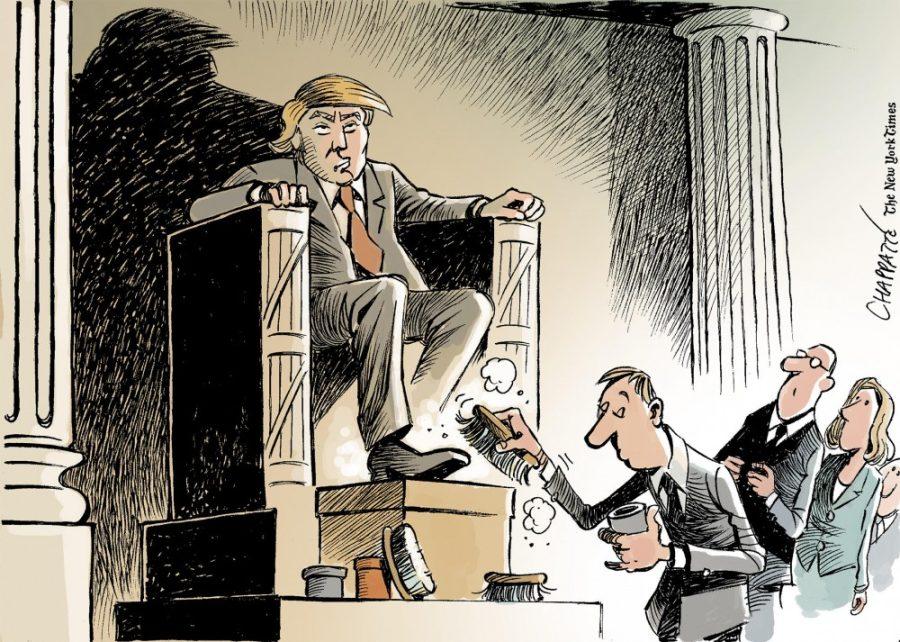Some people hate politics and the news. Some people love politics and the news. Our country is divided. This is the essence of what I learned from Trump’s victory.
Wether you are reading this in a newspaper or online, it’s obvious that you don’t avoid the news.
Thanks for your support—it’s greatly appreciated.
You could have been doing many things at this point in time, but you chose to read, stay updated and listen to opinions.
It’s interesting to me that many people avoid the news at all costs. They hate watching the news, reading it in paper, reading it online. They try to stay away from the headlines. People don’t want to know what is happening all over the world. It’s not a trait particular only to one group of people; it’s a trait shared by all mankind. For many, ignorance is bliss.
I had no idea that this was a phenomenon among so many people. I love the news. I love being aware of my surroundings at all times. I love being able to know.
RELATED: Why we all should be wearing safety pins
People avoid the news because of its upsetting, chaotic nature. They don’t like having tragedies, crimes and issues drilled into their minds on their own free time. Some think that the media is corrupt and only focuses on driving a specific agenda. They think the media’s tactics are harmful, presenting information that’s too much to handle.
This drives people away from the chaos that’s happening all over the world, to seek refuge in the secure and known, in topics that are mathematically and scientifically proven and can’t be debated on. They don’t really care about differing opinions or stances; they want solid facts. They can’t work well with the confusing, diverse, intricate, chaotic elements that are so fundamental in our news cycles or current events.
A lot of people prefer learning in simple, organized, effective and clear ways. In other words, people like thinking about things logically. And when they can’t seem to think logically, they don’t think at all. When they can’t think of a logical way to act, they do not act at all.
This is what I learned from Donald Trump’s victory.
People didn’t want to be involved, so they weren’t. People didn’t become fully enamored with any candidate, so they decided not to pick one at all. This group of people didn’t go out to vote. Other groups did go out to vote, their passion and stance outweighing their personal opinions. And it showed. This is how Donald Trump won.
Our country is not united.
It’s a country that is constantly multiplying, sure. But is it becoming one? I don’t really think so. I think we are starting to see large shifts happening within people. Two groups are forming: People that care and people that do not care—people that are involved and people that are not. This is what our country is becoming, and it became evident on Nov. 8.
RELATED: Trump takes all
Our country focuses on growing exponentially, on being the most powerful capitalist power out there. We focus on being a savior to other “struggling” countries, on being a shoulder to lean on, on being the policing force of the world. The U.S. thinks of itself as a group that solves problems. However, this recent election hasn’t solved any problems. In fact, it has presented us with a new test filled with so many problems that we haven’t been able to answer for years. And it’s timed.
This is urgent.
Our country was once believed to be a perfectly balanced equation, an evaluation many were proud of. Truth is, our country has never been equal; we’ve always been unequal. If our country were a math problem, we would be an inequality. So, what’s the solution? How do we solve, or even simplify, these problems? We learned about division as kids in school and this is still something we haven’t been able to truly solve.
So, what’s the problem? What’s X?
I hope Trump did well in math.
Follow Julian Cardenas on Twitter.









